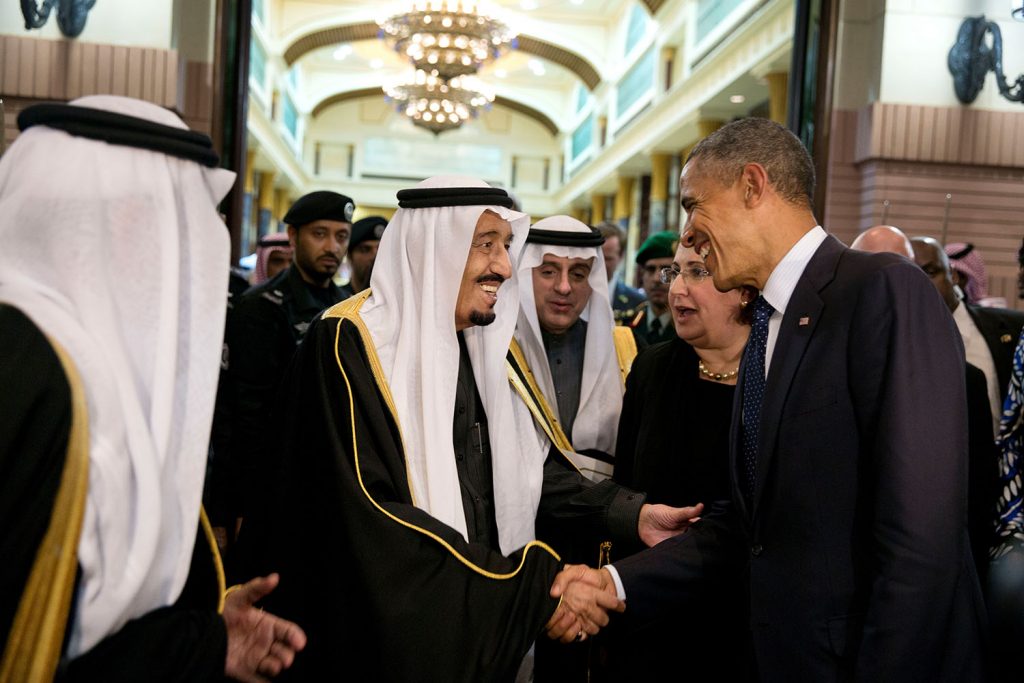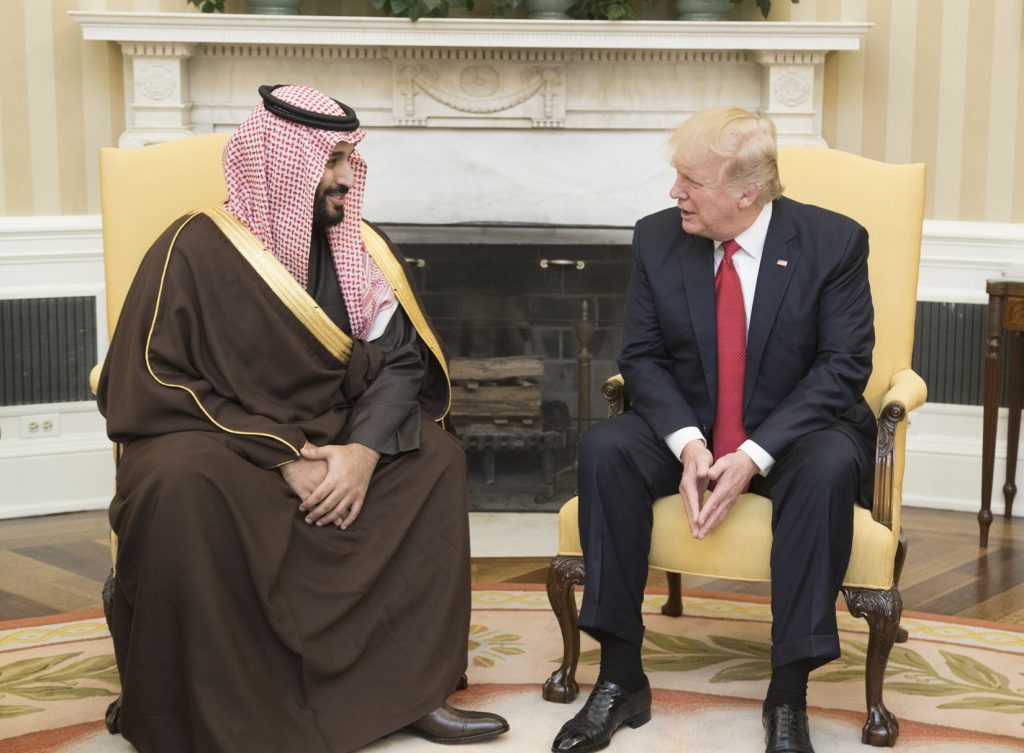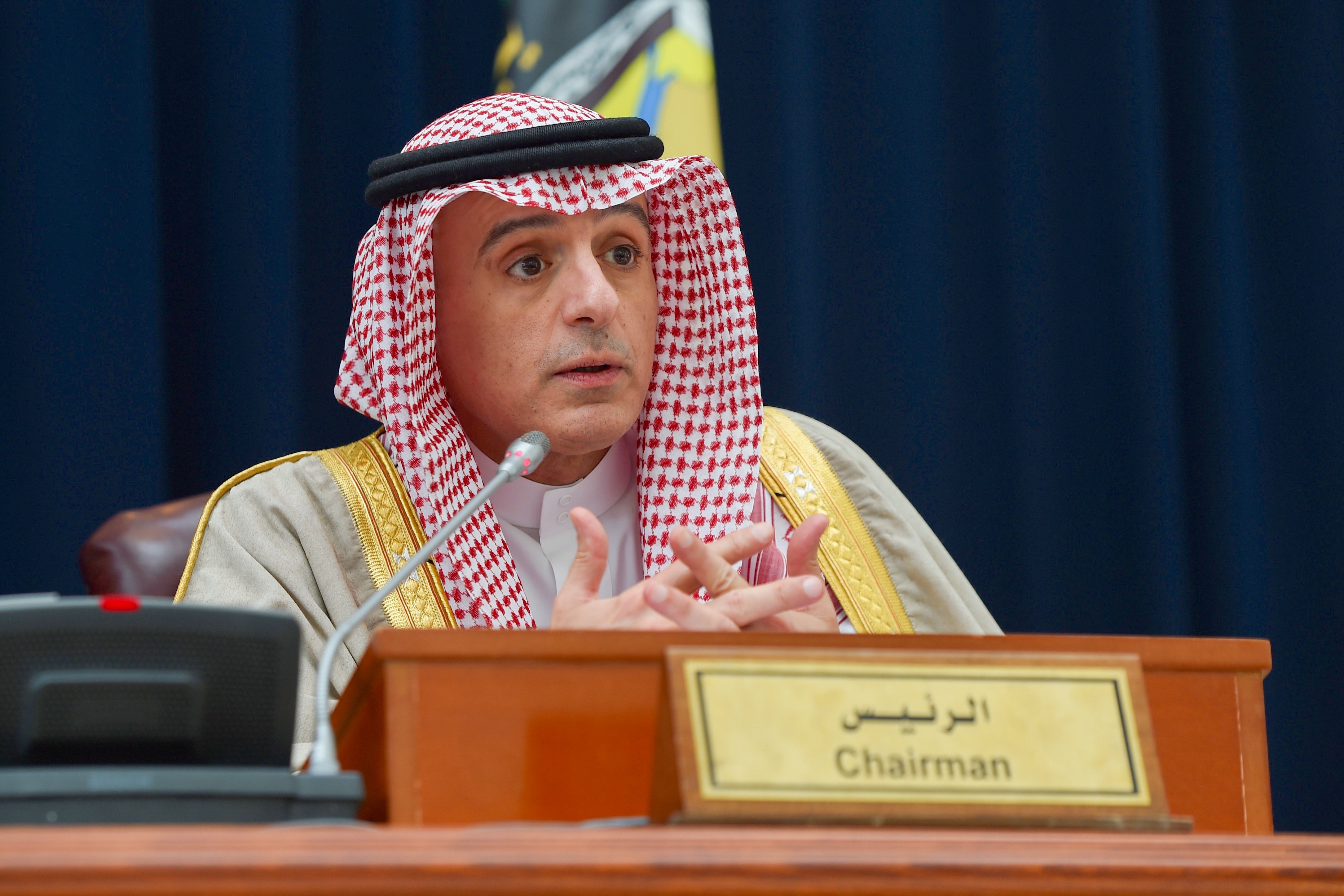Abdulaziz Alghashian | @AzizAlghashian
29 de abril de 2019
In recent years, the number of reports about Saudi-Israeli cooperation has dramatically increased. It certainly captured the attention of many observers who are eager to report on the matter, but it also attracted much speculation that has clouded our understanding with exaggerations and simplifications. I argue that a conceptualisation of cooperation can further our understanding of the very opaque Saudi-Israeli relations. I will offer my opinion on what constitutes Saudi-Israeli relations.
Saudi-Israeli rivalry still exists
Although there is currently much speculation about Saudi-Israeli cooperation, the historical animosity should not be underestimated. Saudi Arabia stands firmly by the Palestinian and Arab cause. Whether it was orchestrating the oil embargo in 1973 to pressure the USA in pressuring Israel to reach a settlement, or mustering a joint Arab diplomatic stance, the Saudi government is still fairly critical of Israel. But supporting the Palestinian and Arab causes does not necessarily mean fighting Israel, and this is where the more militant minded anti-Israelis might doubt the Saudi dedication towards Palestine. Reaching a peaceful settlement that can provide a framework to manage conflict and incentivise peace is the way that Saudi showed its support the most.
The Obama effect
Regardless of their animosity, Saudi Arabia and Israel have always had common goals and their interests have certainly overlapped. They have been at the receiving end of Abdul-Nasser’s pan-Arab ambitions in the 50s and 60s, Saddam Hussein’s scud missiles in Desert Storm 1990-1991, and now, they clearly have Iran as their main focal point. If common goals between Saudi Arabia and Israel are nothing new, why is it presently receiving so much attention?

Historically, especially in the second half of the 20th Century, the United States played a leading role in the Middle East, and was the main security guarantor of both Saudi Arabia and Israel. Therefore, Saudi Arabia and Israel had the United States as a buffer between them which clouded the Saudi-Israeli commonality. It was not until the very tentative and hesitant Obama policy in the Middle East, coupled with an overt Saudi and Israeli demonization of Iran that the buffer between Saudi Arabia and Israel slowly faded away- not to mention, the American rapprochement towards Iran and the nuclear deal. To that end, the American policy under the Obama administration only illuminated the commonality between Saudi Arabia and Israel, even though the Iranian commonality was always there.
From enemy to frenemy
It is with no doubt that the Islamic Republic of Iran has been the main focal point that some Arab states share with Israel, Saudi Arabia in particular. Before we look deeper into the Saudi-Israeli commonality over Iran, we have to briefly examine what Iran means for both states. Iran, in Saudi eyes, is viewed as an expansionist rival that is trying to take over the Middle East. In the words of Partrick (2016), “almost every issue in the region Saudi Arabia and Iran disagree” (p,111), signifying that it is not just political or sectarian problem, but Saudi Arabia and Iran are ideological rivals. The Iranian constitution stipulates that Iranian Revolutionary Guard Corps (IRGC) should strive “on the path of God and struggle on the path of expanding the sovereignty of the law of God in the world”, and hence why Saudi Arabia constantly accuses Iran of “exporting the revolution” (a phrase very common in the Saudi discourse).
Things were not always this bad between Saudi Arabia and Iran. Before the 1979 revolution, relations between the Iran and Saudi Arabia were steady. It is however a completely different story after the 1979 revolution. In sum, the relations are predominantly bad, with some sporadic instances of rapprochement, especially under the Khatami presidency (1997-2005). Although relations improved, the relationship was always clouded by suspicion as the pragmatic efforts of Khatami were often undermined by the rhetoric of the hard-liners within Iran. Saudi Arabia, (as well as anybody who dealt with Iran) realised that the scope of pragmatism for any president will be limited due to the Iranian power structure, as the real power in Iran lies with the Supreme Leader. As a result, it is very difficult to see any form of rapprochement between Saudi Arabia and Iran, especially after the burning of the Saudi embassy in Tehran early in 2016.
On the other hand, Iran, in Israel’s eyes, is viewed as an existential threat that is dedicated to its destruction. The Supreme Leader calling Israel a ‘cancer’ that must be extracted is common within the ruling elite in Iran. Iran’s proxies in the region such as Hezbollah (who were trained/established by the IRGC) and Hamas are both designated as terrorist originations by both Saudi Arabia and Israel. Saudi Arabia wants to keep Iran out of Arab affairs and maintain a leadership role in the Arab world, while Israel wants to see Iran ceasing to fuel its militant threats on the boarders such as Hezbollah. It is hard to dispute that Iran is not a Saudi-Israeli common goal, but what kind of mutual threat/common goal is Iran?
Although relations improved, the relationship was always clouded by suspicion as the pragmatic efforts of Khatami were often undermined by the rhetoric of the hard-liners within Iran. Saudi Arabia, (as well as anybody who dealt with Iran) realised that the scope of pragmatism for any president will be limited due to the Iranian power structure, as the real power in Iran lies with the Supreme Leader. As a result, it is very difficult to see any form of rapprochement between Saudi Arabia and Iran, especially after the burning of the Saudi embassy in Tehran early in 2016.
Active cooperation or harmony?
At this point, we need to ask ourselves, do Israelis and Saudis really need to coordinate to agree that Iran is a mutual threat? No! I argue that Iran is a general common goal resulting out of a tacit understanding, as opposed to a specific goal that is a result of explicit coordination between the two. This means that any effort that Saudi Arabia and Israel take to counter their perceived Iranian threat would be serving each other’s ends. So what is this current phenomenon between Saudi Arabia and Israel?
The discourse revolving around the Saudi-Israeli relationship indicates that there is either cooperation or no cooperation. With such a binary depiction of what cooperation is, there is no room for nuance about the way Saudi Arabia and Israel have reached their common goal. I strongly argue that the concept of cooperation needs to be expanded further. It is at this point that we need to complexify the concept of cooperation, and claim that cooperation can be active or passive.
Active cooperation happens when states adjust their policy towards each other in order to reach their common goal (Keohane, 1984). Passive cooperation on the other hand (which is the concept that I put forth) is when states’ policies reach their mutual goals intentionally, without adjusting their policies towards each other. In other words, their policies are intentionally harmonious towards Iran. Maintaining an intentional harmony of interest is a delicate balancing act. States with symbolic constraints such as Saudi Arabia need to be very careful not to seem too close to Israel, at the same time, keep the pressure on Iran.
In this particular way of reaching goals, Saudi Arabia achieved two major benefits: they reached their mutual goal with Israel, and they maintained their legitimacy by not actively cooperating with Israel. As a result of a harmonious policy and avoiding active cooperation, the Saudi demonisers in the region such as Iran, Qatar, and Turkey, cannot refer to a convincing instant of active cooperation which they can instrumentalise in order to demonise Saudi Arabia further.
Deniability of active cooperation is one of the main characteristics of the Saudi-Israeli phenomenon. Until now, the Saudi deniability has been successful, and Saudi Arabia has maintained its legitimacy. There indeed have been reports and contributions of active cooperation between Saudi Arabia and Israel, such as Ian Black’s LSE report “Just Below the Surface: Israel, the Arab Gulf States and the Limits of Cooperation”. For example, the former Saudi ambassador Prince Bandar met secretly with the Israeli Prime Minister Olmert to discuss how to best proceed with Palestinian-Israeli talks. But much of the sources the report relied on can be considered speculative as there has never been any confirmation of such cooperation by a Saudi source, and most of the sources have either been news articles or anonymous Israeli sources. I strongly believe that by complexifying cooperation and by adding the notions of active and passive cooperation, we can then have a better understanding of the Saudi-Israeli-Iranian nexus, as opposed to just speculating over instances of Saudi-Israeli active cooperation
Prospects of active cooperation
Saudi Arabia is not opposed to having active cooperation with Israel- only if (and it is a big if) the Arab Peace Initiative (API) is accepted. The API came as a response to the intifada of 2000, in which Saudi Arabia and other Arab states deemed reaching a settlement extremely necessary to avoid any more spilling of blood. It is worth mentioning that the API was an extension to the Saudi 2002 peace initiative known as the Abdullah plan (then Saudi Crown Prince and later King 2005-2015).
The API stipulated that Arab states will have “normal relations” if conditions such as the establishment of a Palestinian state with East Jerusalem as its capital, and reaching a settlement pertaining to the 1967 borders were met. Writers like Doron Matza and Adam Hoffman (2019) claim in their blog report “From Taboo to Cooperation: Israel’s Changing Relations with the Arab World” that the API “has been practically emptied of all substance by the Saudis themselves, given their increasingly close relations with Israel”.

In this regard, I respectfully disagree with their opinion. I argue the complete contrary, as I believe that the API is the key to open and active Saudi-Israeli relations. The API is an implicitly flexible framework that stipulates the legitimisation of Saudi-Israeli open and active cooperation. In this regard, I strongly argue that an active cooperation between Saudi Arabia and Israel cannot be materialised without a resolution that will lead to a Palestinian state and a resolution over the 1967 boarders. Since a resolution to the Arab-Israeli conflict is unforeseeable, a public active cooperation between Saudi Arabia and Israel is equally unforeseeable.
Trump and the deal of the century
Many assume that there will be a plan that Palestinians and Arab states will just be too good to turn down. This is very unlikely given the over the top support the Israeli government has been enjoying from the Trump administration. The move of the American embassy to Jerusalem, the recognition of the Golan Heights as Israeli territory is just furthering any settlement between Palestinians and other Arab states with Israel. It may seem to be a deal of the century for Israel, but it will most likely be a disaster of the century for Palestinians as more and more territory and negotiating power is slipping away from them.
I strongly believe that the Trump administration and Kushner (Trump’s son in law) in particular, are underestimating the place the Palestinian cause has in Saudi. As a leader in the Muslim world, Saudi Arabia cannot afford to accept any official unilaterally deal with Israel. If it does accept a deal with Israel, then Saudi Arabia can no longer label itself a leader in the Muslim world. Accepting a peace settlement outside the principles of the API is not just a matter of a pro–Palestinian stance- it is a matter of Saudi legitimacy. If the Saudi elite have shown anything over the years, is that it has always found a way legitimise its self. Therefore, an active cooperation between Saudi Arabia and Israel is unlikely, but an intentional harmony will still be there.
References
Black, I. (2019). Just Below the Surface: Israel, the Arab Gulf States and the limits of Cooperation. LSE Middle East Centre
Keohane, R, 2005. After hegemony: Cooperation and discord in the world political economy. Princeton University Press.
Matza, M and Hoffman, A. (2019). From Taboo to Cooperation: Israel’s Changing Relations with the Arab World. Available: https://blogs.lse.ac.uk/mec/2019/03/29/from-taboo-to-cooperation-israels-changing-relations-with-the-arab-world/. Last accessed 18/04/2019.
Partrick, N (2016). Saudi Arabian Foreign Policy: Conflict and Cooperation. London: I.B Tauris.

